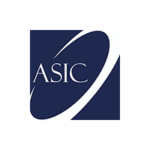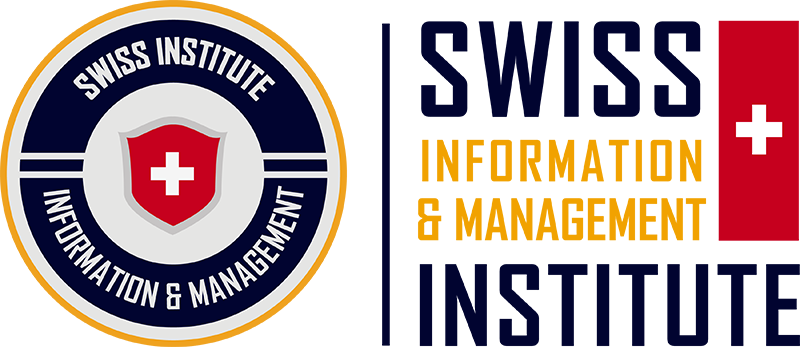Certified Enterprise Risk Management for Board of Directors
The massive disruption to global supply chain globally, caused by Covid-19, impacting all businesses in the world as their transportation for land, air and sea came to a complete halt since March/April 2020. This phenomenon had clearly revealed the inadequacy in risk management in many global organisations for not adopting holistic approach in managing risks. COSO ERM June 2017 stated that many corporations attempt to implement ERM were often not enterprise-wide in scope, and applications of ERM were rarely integrated with strategy-setting. It is an era where technological changes in the spheres of digital, connectivity, robotics and big data will have a broad impact on the labour market and all sectors of global economy. Hence this will impact greatly on all corporations’ ability to survive in this VUCA (Volatile, Uncertain, Complex and Ambiguity) environment where risks are aplenty. This oversight of risk is part of the Board of Directors’ (BoDs) responsibilities, in governance, for supervising the activities of the C-suite executives and establishing boundaries within which the corporation must implement those strategies into process/procedures, whilst managing/protecting themselves with enterprise-wide risk management, from the VUCA events.
This 2-day workshop participants will learn how to develop and formulate the ERM Framework from the corporate strategy setting at BOD level, all the way through the risks caused by external and non- controllable events at strategic level. The program will also cover the integration of ERM framework to your risk management processes, compliance policies/regulation as well as governance with effective strategy execution so that your company can continue to follow highly innovative strategies, while simultaneously anticipating and mitigating the inherent risks.
By the end of this training program, each participant will be able to:
- Assess organisational risk maturity level to aid formation of ERM Framework
- Ensure the alignment of ERM policy to corporate strategy for holistic strategic planning
- Institute a ERM framework for effective risk monitoring and control
Training methodology
This 2-day program is entirely interactive and every participant will be fully participative in group discussion, exercises and case studies. A step-by-step guidance in how to develop, establish and implement an enterprise risk framework will be taught to each participant. Trainer will coach each participant and ensure that each participant is able to institute the ERM framework.
Who should attend
Non-Executive Directors at Board of Directors level, Board of Directors, CEO, C-suite executives and Chairman of Board of Directors.
Course requirements
You should have at least FIVE (5) years of practical experience as a member of the board. He/she needs to have pre-requisite knowledge in accounting, auditing, corporate finance, capital markets and risk management knowledge.
Day 1
What is Holistic Enterprise Risk Management (ERM) to BoDs
- Why ERM? What does it comprised of?
- Recognise the inter-relationship of ERM to Governance and Compliance
- High profile corporate failures due to mismanagement of ERM
- Impact to BoDs
Role of BoDs in Risk appetite, Risk Capacity, Risk Culture and Capital
- Scope of risk capacity and risk appetite of each organisation
- Impact of ERM to Capital Adequacy
- Instil ERM to form Risk Culture
- Key Take-ways for BoDs in approving risk appetite, risk capacity and instil risk culture
Behavioural Finance and its impact on ERM
- Top Management behaviour towards investment decision making
- The importance of behavioural finance and how it works
- Behavioural finance influencing top managements’ choices and decision making
- Role of BoDs in using behavioural finance on top management decision choices
Case Study:
Participants will apply behavioural finance techniques on case scenarios and understanding its impact on top management’s strategy selection and other investment decision making. Participants will be able to drawn concrete lessons learnt resulting in ability to balance impacts from rational and emotional behaviours of top management.
The ERM Framework and BOD Oversight for Effective Governance
- Risk Oversight by BOD
- Risk Oversight Perspective – Top Down, Bottom Up and Middle Approaches
- Roles and Responsibilities of BOD, CEO, Exco, Committee Charter
- Institute a Holistic ERM Framework
Ensure the Alignment of ERM to Strategic Planning
- Align ERM to Strategic Planning at strategic level
- Balance risk appetite with risk capacity at strategic planning level
- Categories the various risks at strategic or BOD level
- How to approve a Holistic ERM framework at strategic/BOD level
CASE STUDY
Participants will study a classical case study on how the ERM was misaligned to corporate strategy during the strategic planning process. They will identify key lessons learnt while drawing references to current global financial situation leading to best practices being formed and adopted.
Day 2
Evaluate the Alignment of Business Risks to Business Planning for ERM Compliance
- Align business risks to business planning at business unit levels
- Empower risk owners – how to determine such personnel and enforce ownership
- Establish committee charter and reporting structures
- Key strategic controls for BoDs to impose on ERM policy
Establishing Key Risk Areas and Key risk indicators at BOD level
- Learn how to build effective key risk areas (KRAs) and key risk indicators (KRIs).
- Align KRIs to KRAs
- Ensure KRAs link to Corporate Objectives at Strategic/BOD level
- Assign KRIs to C-suite executives and record in personal performance targets
CASE STUDY
Participants will be given a case study to identify the misalignment of business planning to business risks resulting in financial losses. They will also discuss on the various ways to mitigate such ERM risks and design proper communication channels as well as effective risk control mechanism.
Governance in ERM Framework
- Take ownership of Risks by BOD, CEO and Exco
- Responsibility to stakeholders by BOD and CEO
- Implement the importance of accountability in conjunction to Balanced Scorecard
- How to reward the “right” behaviour and “discourage” the non-compliance
- Implement the whistle-blowing policy
Cascading the ERM Process from Top Management/BOD levels
- Stakeholders interest in risk & measuring the benefits
- Breaking down Key Risk indicators (KRI’s) at corporate/business level into Key Performance Indicators (KPIs) for individuals
- Manage and Instil Risk Culture for competitive advantage
- What to sign off on ERM related reports and types of key risks controls
CASE STUDY
Participants will be given a case study requiring them to establish the corporate KRIs for ERM compliance. They will discuss and challenged each other on its viability and functionality leading to drawing lessons learnt.
Every participant will either use their own organization or an approved case study and attempt to apply all the knowledge that they had acquired over the 2-day. This includes setting up the ERM Framework, approving KRIs, identify the various types of key risks covering market, credit, operational, liquidity, compliance and cyber, committee charter and reporting governance structure. This project will be then assessed by a panel of international experts in the 2 accrediting bodies in addition to the trainer.

Dr. Christopher Goh
Dr. Christopher is a professional, with some 25 years with extensive experience in, risk management, design thinking, compliance, anti-money laundering, strategic planning, exotic options, behavioural finance, and structuring products using derivatives and in particular to enterprise risk management where he spent some 15 years in this area, where he was the pioneer in risk management, since 1989.
He holds the title of chief risk officer for Asia Pacific having established holistic enterprise risk management and compliance framework, which includes anti-money laundering, sanctions, compliance and governance, spearheaded the implementation enterprise risk management process for some 3 international banks in Asia Pacific.
He had implemented enterprise risk management and compliance framework through practical experience gained through various diverse economic cycles. He had worked for 6 different banks over a period of some 25 years across 6 different cultures, business practices and management styles. This had given him a very deep knowledge in handling clients and managed staff from diverse cultural background.
Dr Christopher had conducted many in-house corporate seminars for the past 15 years training international and central bankers, senior management from government bodies from Asia region like Malaysia, Indonesia, Taiwan, China, Singapore, South Korea, Thailand, Hong Kong, Vietnam, Myanmar, Philippines, and to as far as London, Vienna, Jeddah, Riyadh, Kuwait, Johannesburg, Lagos (Nigeria), Accra (Ghana), Nairobi (Kenya), Dubai, Zimbabwe, Zambia, Lesotho, Moscow and Ulaanbaatar (Mongolia). He had since travelled to some 38 international cities to conduct international workshops and consultancies.
His current seminars and consultancy works are mainly focused on Governance, Risk and Compliance, Design Thinking for Bankers and Non-bankers, Enterprise Risk Management, Setting KPIs with Enterprise Balanced Scorecard, Organisational Development Audit/Assessment, Compliance Risk Management, Operational Risk and Compliance Management, Transforming Strategy into Business Results.
He had published over 20 Risk Management, Strategy and Technopreneurship articles. He had co-authored 2 books published in 2017:
- Design Thinking for Management, Leadership and Technopreneurship, TWAN Pte Ltd, 1st Edition, ISBN: 978-981-11-4217-8, published in December 2017
- Technopreneurship: in Industry 4.0, TWAN Pte Ltd, 1st Edition, ISBN: 978-981-11-3875-1 published in December 2017
Dr Christopher has most recently been appointed as Dean for School of Finance and Banking with Swiss Institute of Management and Innovation based in Zug, Switzerland. He is also an Adjunct Visiting Faculty to some foreign universities namely: Shanghai JiaoTong University, Central University of Finance and Economics (Beijing), Harbin Institute of Technology (Harbin), S.P. Jain (Singapore and Dubai campus) on a yearly basis on banking certification courses and/or EMBA courses.
Certified ERM for BoDs is the unique programs from the Swiss Institute of Management and Innovation (SIMI)’s School of Finance & Banking. This program is also accredited as the other accredited programs from SIMI.
Accreditation & Recognized of the Swiss Institute of Management and Innovation (SIMI)

Zug Canton

